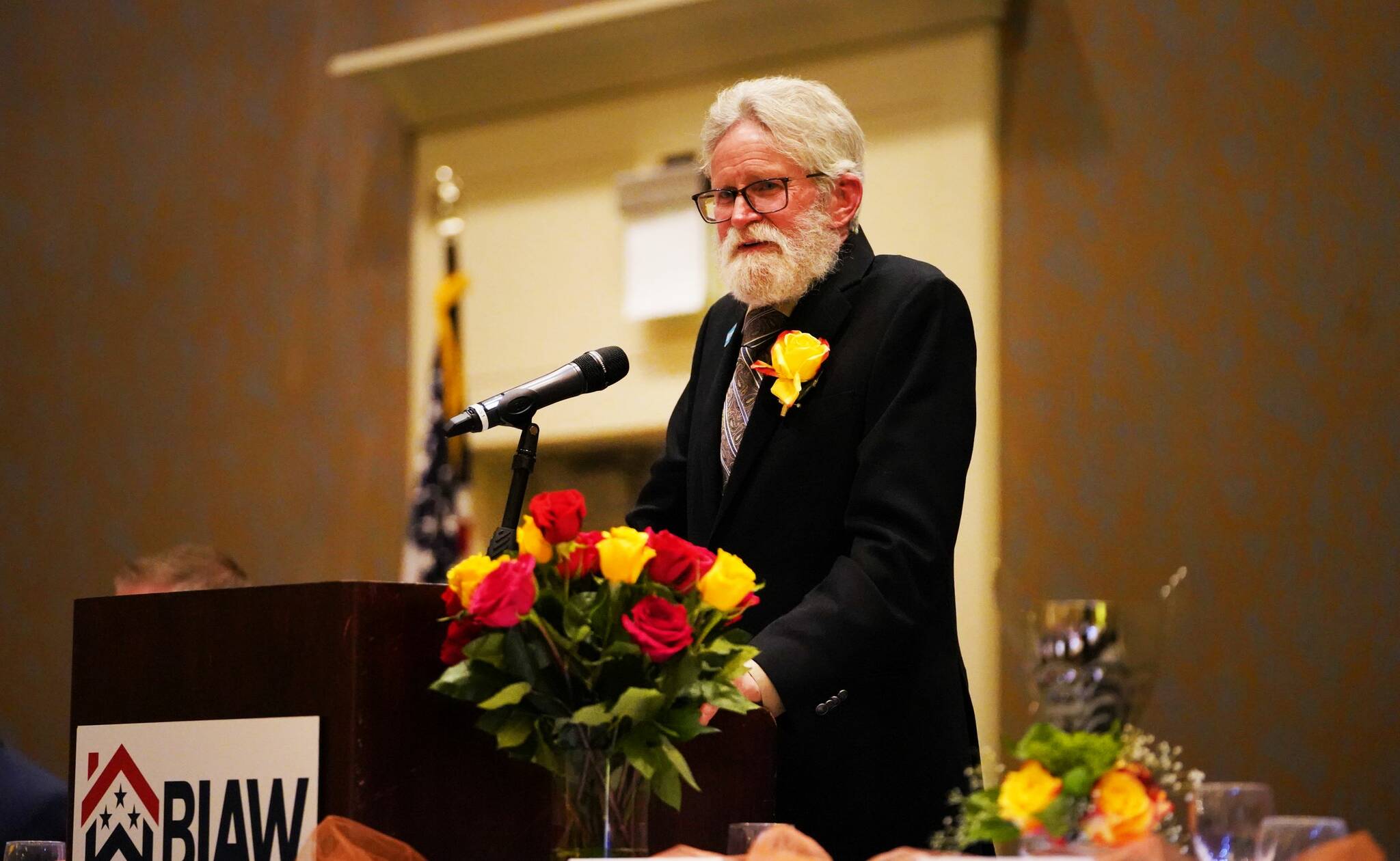Well-known Coupeville builder Gary Wray will soon lead one of the largest home building associations in the nation.
At a board meeting in Vancouver, Washington earlier this month, Wray received the double honor of being installed as 2023 president of the Building Industry Association of Washington and winning the coveted state Builder of the Year award.
Wray, a former candidate for county commissioner, owns and operates Laser Construction and Development, a siding subcontractor. He’s been involved in promoting the building industry for years and is a busy leader in charitable causes on Whidbey Island.
Wray served on the board of directors for the Skagit/Island Counties Builders Association for 12 years. Over the last 10 years, Wray served on a number of committees in the state association, including the Education and Legal committees and the Workforce Development Task Force. He chaired the Legislative Policy Committee in 2015-2016 and participates in the Washington Affordable Housing Council.
On Whidbey, Wray chairs the board of directors of Habitat for Humanity of Island County where he’s been a board member since 2008. He is a member of Hearts and Hammers, a nonprofit organization that helps repair and rehabilitate homes of those who are physically or financially unable to do the work alone. In addition, he is on the board of directors for Civility First, a grassroots movement on Whidbey Island that promotes courteous public and private dialogue.
Wray said the state association has about 8,000 members who provide jobs to 250,000 employees in the state.
Wray pointed out that a lack of affordable housing is one of the greatest challenges in the state and an issue that the association has been focusing on for years, which is a trend he said he will continue. He said the state is 270,000 homes short of what is needed and 75% of residents can’t afford the typical home. He said studies show that the average delay caused by permitting increases the cost of homes by $30,000 and regulations add an additional $70,000.
The association, Wray said, has long been warning state lawmakers about building codes and planning rules that increase the cost of homes.
“They are finally figuring out that we have a point,” he said.
Wray said he hopes to build stronger connections between the state association and organizations like Habitat for Humanity to help address the housing crisis.
Another issue that is near to Wray’s heart is the dearth of young people in the trades, especially the residential construction workforce. He’s hoping to spread the message in schools that working in the skilled trades is a viable and lucrative career.
“It’s going to take a generation to rebuild the workforce,” he said.
Ironically, Wray said he he’s been trying to retire. He said his business had as many as 10 employees before his brother, who was his partner, retired two years ago. Currently, the business consists of just him.
Prior to his homebuilding career, Wray served in the Navy for six years where he was a petty officer second class. He used the GI Bill to go to Everett Community College to train for his homebuilding career.
Wray was a party in Freeland Concerned Citizens’ failed lawsuit against the county and the Low Income Housing Institute over a project to turn a Freeland motel into low-income housing and a shelter. He said he wasn’t against the project but wanted to ensure that it was being done legally; he said he didn’t agree with many of the legal decisions that were made in the case.



